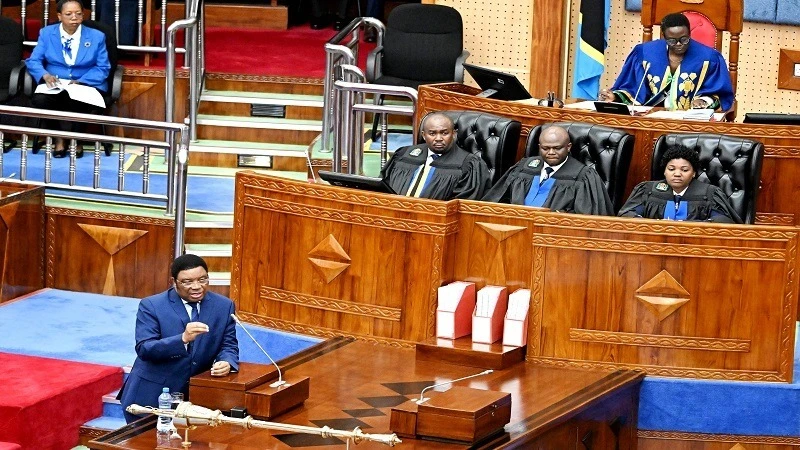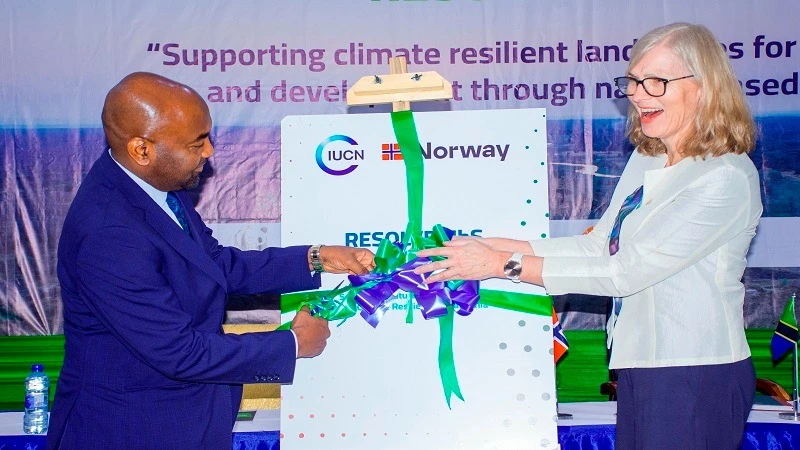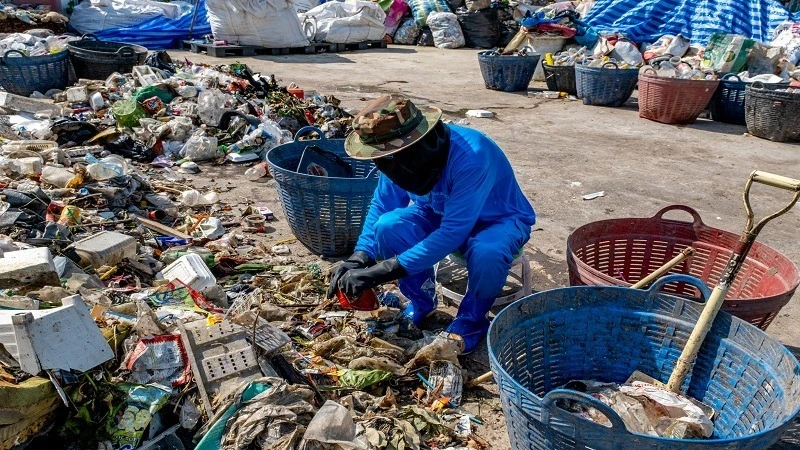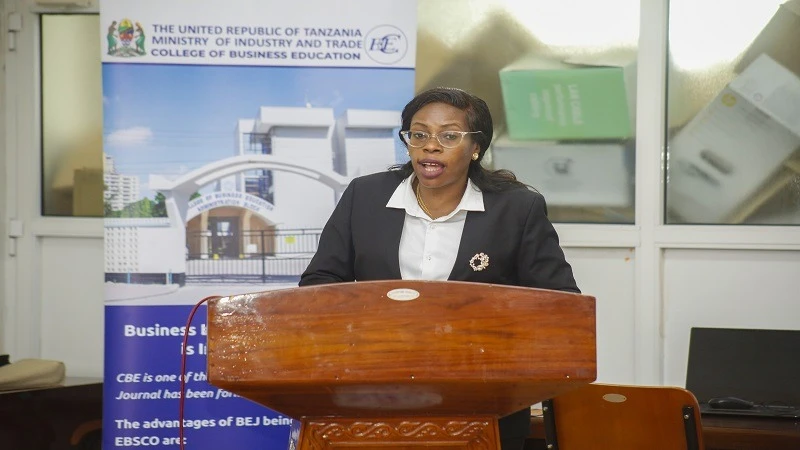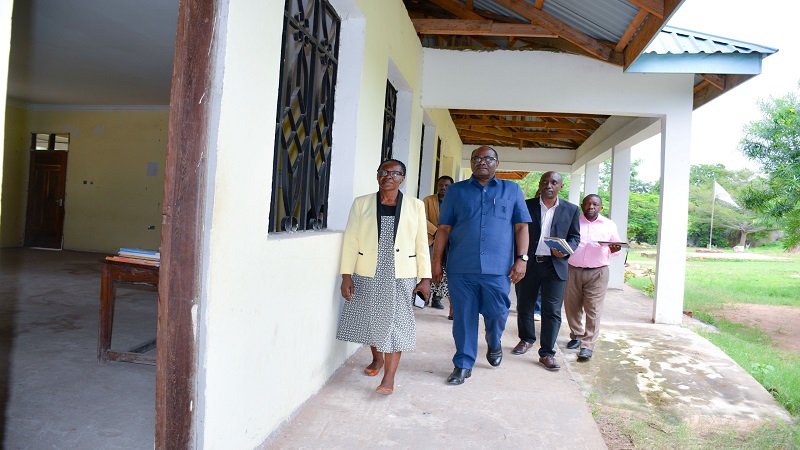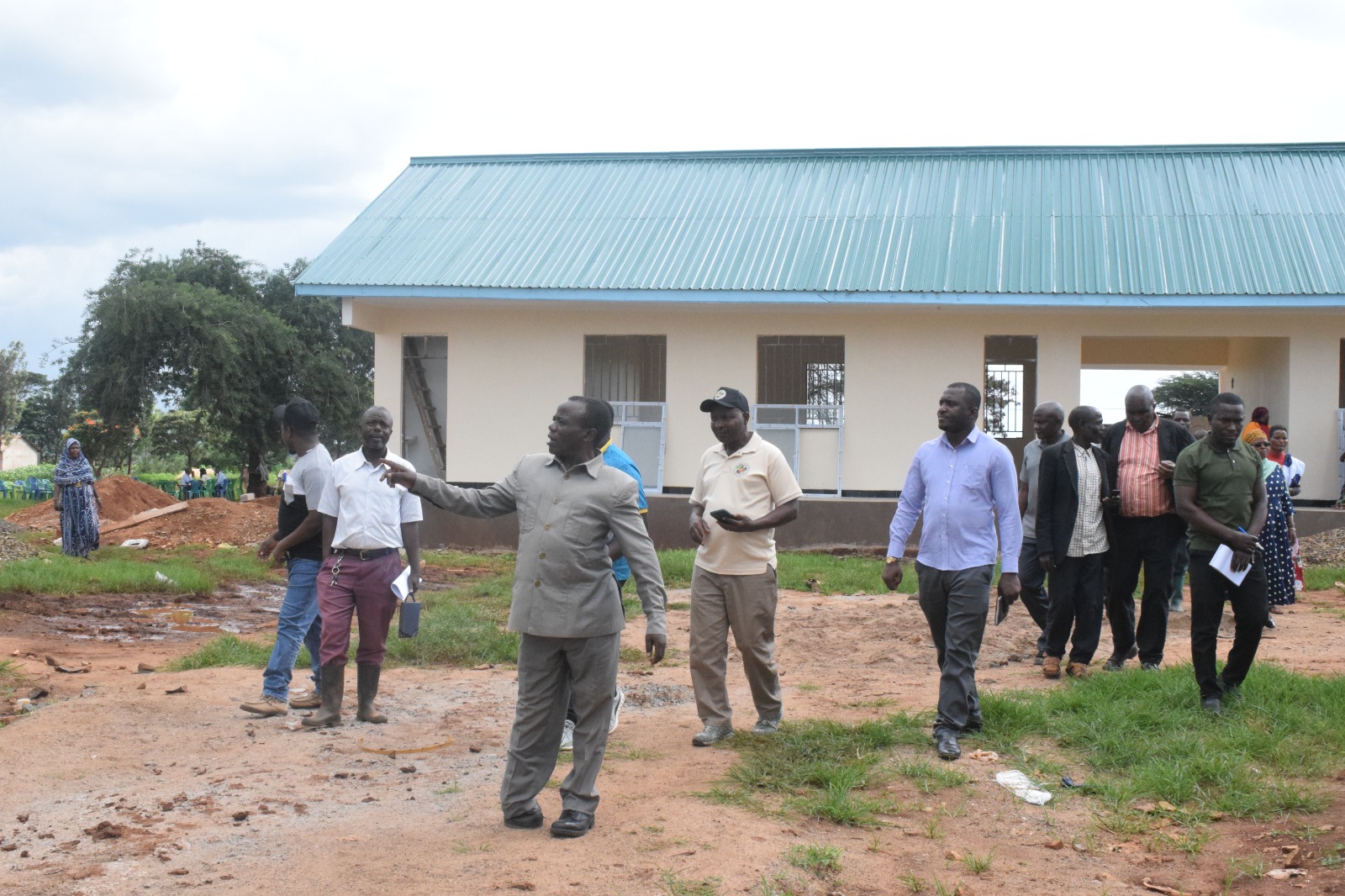Tanzania's bold foreign policy elevates economic diplomacy, cultural heritage
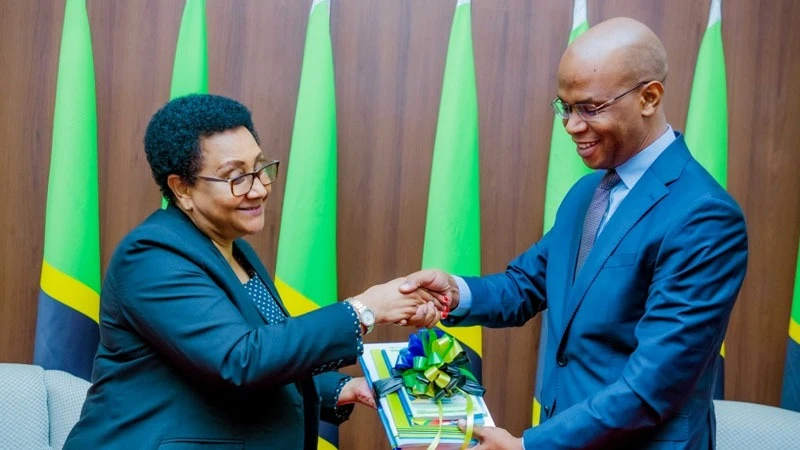
TANZANIA'S bold move! Ambitious reforms unveiled in foreign policy at a prestigious conference in Dar es Salaam on January 9, 2024, signal a proactive stance in navigating the evolving global landscape. These reforms reflect the nation's strategic intent to adapt to emerging challenges and seize new opportunities on the international stage.
Minister for Foreign Affairs and East African Cooperation, January Makamba, took over the office from former Minister of the Ministry, Dr Stergomena Tax, on September 2023 at the ministry's offices in Dar es Salaam September.
Minister for Foreign Affairs and East African Cooperation, January Makamba, took over the office from former Minister of the Ministry, Dr Stergomena Tax, on September 2023 at the ministry's offices in Dar es Salaam September.
Central to Tanzania's foreign policy agenda is the emphasis on economic diplomacy as a cornerstone strategy for advancing the nation's economic interests abroad. "Economic diplomacy is a vital tool for promoting our economic growth and enhancing our competitiveness in the global economy," stated January Makamba, Minister for Foreign Affairs and East African Cooperation. "By engaging in economic diplomacy, we can attract foreign investment, stimulate exports, and increase our access to foreign markets," he added.
A fundamental aspect of Tanzania's economic diplomacy strategy involves fostering inward investments, particularly through initiatives like mobilizing Foreign Direct Investments (FDIs). David Kafulila, Executive Director for the PPP Centre, emphasized the nation's commitment to enhancing economic diplomacy in collaboration with key stakeholders such as the Minister of State, Office of the President, Planning and Investment, Prof. Kitila Mkumbo.
In a recent article published in one of the weekly newspapers, Kafulila addressed criticisms surrounding the endorsement of a public-private partnership (PPP) contract with Dubai-based Emirates National Group (ENG).
He highlighted that while some critics questioned the use of foreign investors, Kafulila stressed the importance of leveraging both local and foreign investments for economic development. He argued that foreign investors like ENG are not detrimental to Tanzania's economy but rather contribute positively by complementing government efforts and bringing additional resources and expertise.
Kafulila's insights shed light on Tanzania's pragmatic approach to economic diplomacy, showcasing the nation's readiness to embrace diverse investment opportunities while navigating potential challenges and maximizing benefits for sustainable economic growth.
"We are actively fostering Public-Private Partnerships (PPPs) to catalyze economic activity and generate employment opportunities both domestically and internationally," Kafulila emphasized.
Moreover, Tanzania's revamped foreign policy framework encompasses a comprehensive approach to regulatory regimes and the management of complex external economic activities at various levels, including multilateral, regional, and bilateral engagements.
“In our active participation within international forums such as the World Trade Organization (WTO), we cultivate indispensable conditions favorable to trade and investment," elucidated Prof. Honest Ngowi, an esteemed scholar renowned for his expertise in international trade, as articulated in one of his seminal research papers.
The proposed reforms also highlight the importance of fostering closer ties with international partners and strengthening existing alliances. "Strategic partnerships and diplomatic channels play a crucial role in enhancing our influence and amplifying our voice on critical global issues," noted Prof. Samwel Wangwe, an expert in international relations.
In terms of Foreign Direct Investment (FDI) inflows, Tanzania has witnessed a significant increase in recent years. According to official statistics, FDI inflows reached $1.1 billion in 2023, reflecting growing investor confidence in the country's economic prospects.
Key among the proposed reforms is a commitment to safeguarding Tanzania's rich cultural heritage in the face of accelerating globalization. Recognizing the importance of preserving national traditions and customs, the government aims to embed cultural preservation as a cornerstone of its foreign policy agenda.
Economic diplomacy takes center stage in the proposed revisions, with the government pledging to enhance coordination and strategy in promoting Tanzania's economic interests abroad. The emphasis on economic diplomacy reflects recognition of the pivotal role that trade, investment, and economic partnerships play in driving national development and prosperity.
In a bold move to elevate its global profile, Tanzania plans to intensify efforts to promote Kiswahili as an international language. By commercializing Kiswahili and positioning it as a language of business and diplomacy, Tanzania aims to strengthen its cultural influence and expand its soft power on the world stage.
Diaspora engagement emerges as another key focus area, with the government acknowledging the significant contributions of Tanzanians living abroad to national development. By actively involving the diaspora community in its foreign policy initiatives, Tanzania seeks to leverage its expertise, networks, and resources for the benefit of the nation.
Gender equality and youth empowerment feature prominently in the proposed reforms, reflecting a commitment to inclusivity and social justice. Through targeted policies and programs, the government aims to ensure that women and young people are active participants in shaping Tanzania's foreign policy priorities and outcomes.
Minister of State in the Vice-President's Office (Union and Environment), Dr. Suleiman Jafo, has provided insights into the tangible benefits Tanzania stands to gain from its active participation in the recently concluded COP28 conference. Speaking to reporters in Dar es Salaam in December 2023, Minister Jafo emphasized the significance of Tanzania's engagement at COP28, highlighting potential investments, technology transfers, and expertise acquisition to mitigate the impacts of climate change.
Among the notable outcomes highlighted by Minister Jafo is the anticipation of investments from 56 foreign firms following agreements reached with local Tanzanian companies. "Among the benefits of Tanzania's participation in the COP28 conference is the agreement entered into by Tanzanian companies with more than 56 foreign firms coming to invest in Tanzania," Minister Jafo remarked, highlighting the positive economic implications of Tanzania's involvement in global climate initiatives.
Additionally, Minister Jafo emphasized the importance of integrating environmental sustainability into Tanzania's foreign policy agenda, particularly in light of the pressing concerns surrounding climate change. He emphasized the need for proactive measures to address climate-related challenges and promote green initiatives, positioning Tanzania as a responsible global actor committed to environmental stewardship.
In addition to economic benefits, Tanzania's participation in COP28 is expected to facilitate access to critical resources such as funds, technology, and expertise necessary for implementing effective climate resilience strategies. Minister Jafo's remarks reflect Tanzania's commitment to leveraging international partnerships to advance its environmental objectives and drive sustainable development.
Embracing visionary strategies ahead of the 2025 plan, Tanzania aims to reignite its stature as a formidable middle-sized economy, reminiscent of the era under Magufuli's leadership. This entails orchestrating a symphony of economic diplomacy, weaving strong trade alliances, magnetizing Foreign Direct Investments (FDIs), and orchestrating dynamic Public-Private Partnerships (PPPs) to propel the nation toward unparalleled growth and prosperity.
Pioneering innovation and championing modern economic policies are pivotal in navigating the intricate web of the global economy, ensuring Tanzania's foothold as a formidable contender on the global stage. By fostering proactive engagement and executing meticulous strategic planning, the country is poised to actualize its vision of evolving into a flourishing and resilient economy in the forthcoming years. These strides highlight Tanzania's proactive stance in tackling pressing global challenges and solidifying its position as a pivotal player in the international arena.
Top Headlines
© 2025 IPPMEDIA.COM. ALL RIGHTS RESERVED













